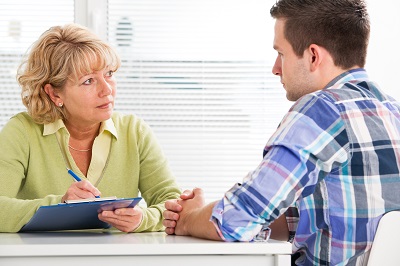- Calls to this hotline are currently being directed to Within Health or Eating Disorder Solutions
- Representatives are standing by 24/7 to help answer your questions
- All calls are confidential and HIPAA compliant
- There is no obligation or cost to call
- Eating Disorder Hope does not receive any commissions or fees dependent upon which provider you select
- Additional treatment providers are located on our directory or samhsa.gov
Acknowledging and Accepting Binge Eating Disorder Diagnosis

Contributor: Crystal Karges, MS, RDN, IBCLC Special Projects Coordinator at Eating Disorder Hope/Addiction Hope
Coming to terms with any type of physical or mental struggle can be difficult to the say the least. Because there is so much stigma and shame associated with disease in general, acknowledging and accepting a diagnosis can feel more like judgment and labeling. Especially when it comes to mental illness and eating disorders, having the diagnosis of binge eating disorder can bring out a wide range of emotions.
If you have been diagnosed with binge eating disorder, you may be experiencing many different thoughts and feelings about this. On one hand, it can feel as though you are being labeled or stigmatized as something other than you are. On the other side of things, it can be a relief to have a name with what you have been struggling with. Putting a name with the struggles you have been facing means that you can more effectively treat the issue.

If you have been struggling with symptoms of binge eating disorder but are unsure about an official diagnosis, be sure to connect with a professional who specializes in eating disorders. These specialists can use assessments to help figure out a diagnosis for what you may be struggling with, which can help lead you towards the treatment and help you need to recover. Accepting and acknowledging a diagnosis of binge eating disorder can be overwhelming, so be sure to process what you are feeling and experiencing with someone you trust. Having a support team throughout your journey will give you a strong foundation from which you can build your recovery.
Community Discussion – Share your thoughts here!
What do you think are some of the challenges that come with accepting a binge eating disorder diagnosis? What are some of the benefits of coming to terms with a binge eating diagnosis?
The opinions and views of our guest contributors are shared to provide a broad perspective of eating disorders. These are not necessarily the views of Eating Disorder Hope, but an effort to offer a discussion of various issues by different concerned individuals. We at Eating Disorder Hope understand that eating disorders result from a combination of environmental and genetic factors. If you or a loved one are suffering from an eating disorder, please know that there is hope for you, and seek immediate professional help.
Last Updated & Reviewed By: Jacquelyn Ekern, MS, LPC on October 9, 2015. Published on EatingDisorderHope.com
